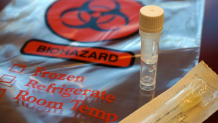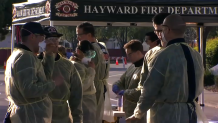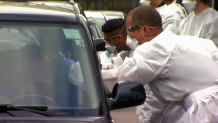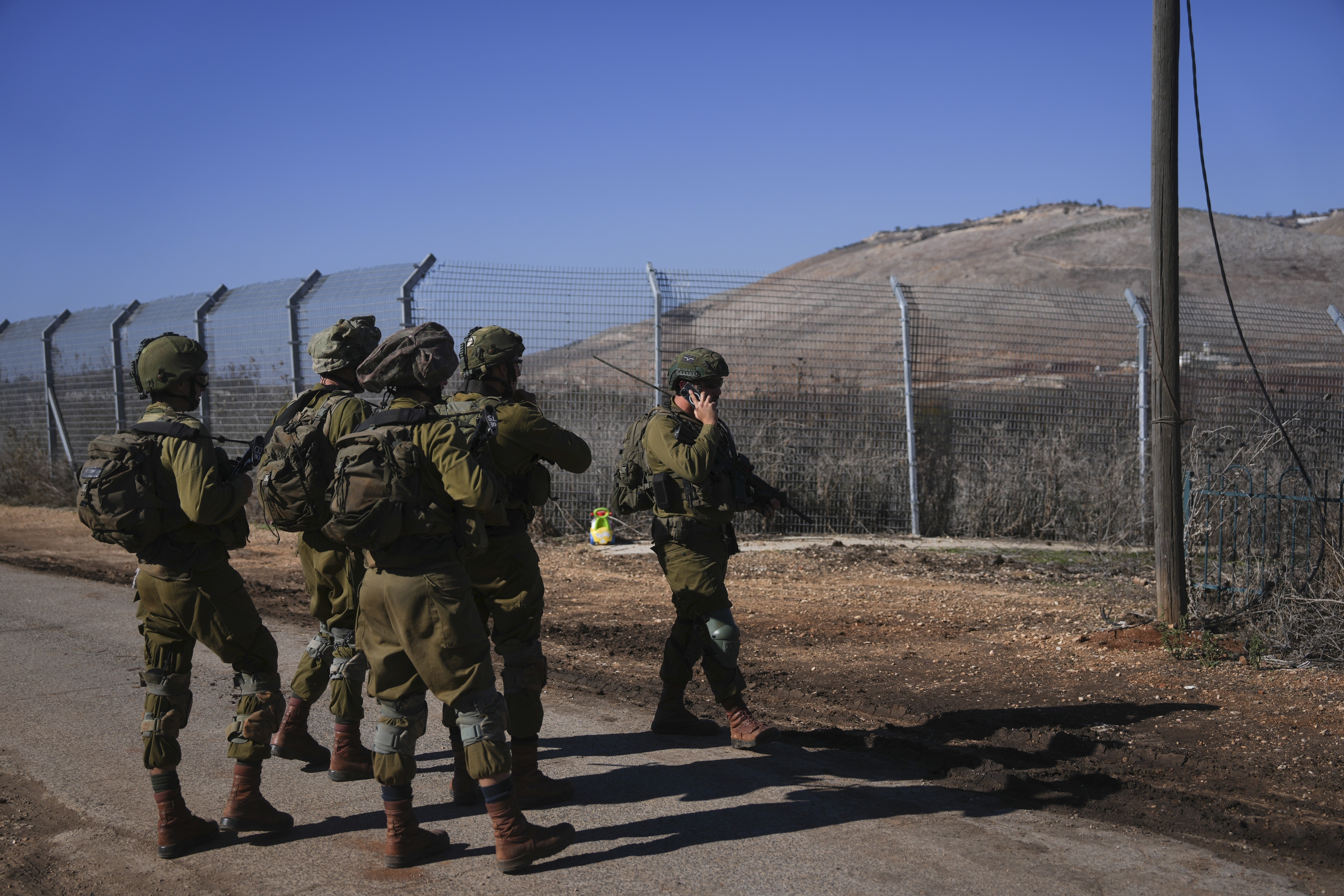While testing for the coronavirus has been slow and scarce across the U.S., one Bay Area laboratory has created what they say is a faster, more accurate COVID-19 test, which is already attracting long lines of patients hoping to find out if they are infected.
The virus mutates every day, every week
Dr. Connie Chao-Shern, molecular biologist
“We were able to tweak some parameters and make sure that we give accurate results, but with a faster turnaround time,” said Dr. Connie Chao-Shern, a molecular biologist who helped create the new test with her team at Avellino Labs in Menlo Park. “The virus mutates every day, every week, and this [test] … actually is following the virus in all the mutations.”
Dr. Chao-Shern, who serves as the chief lab officer for Avellino Labs, says the new test provides quicker and more accurate results than other tests, including those created by the CDC.
“The quicker we detect the patients who are positive, the better they we can stop the spread,” said Dr. Chao-Shern. “The longer we wait, the more chance of spreading the virus to somebody else.”
FDA Authorizes Bay Area Lab to Begin Testing for Coronavirus
After receiving emergency authorization from the FDA, Avellino Labs received its first batch of tests to process Monday morning. The NBC Bay Area Investigate Unit was the only media outlet at the headquarters when those initial 33 samples arrived for processing.
Avellino’s new coronavirus test can be processed within four to seven hours, which would allow patients to be notified of their results within one day.

Lab Focused on Eye Diseases Pivots to Coronavirus
U.S. & World
COVID-19 tests are a new direction for the lab, which, up until this week, only focused on making tests to diagnose eye diseases.
“We suspended testing of those,” said John Hong, who heads the legal department and human resources at Avellino Labs. “We've pivoted completely to testing for coronavirus,” explaining that because both tests require genetic testing, the technology is similar.
We quickly realized, almost immediately, that this is something that may be able to benefit everyone
John Hong, Chief People Officer for Avellino Labs
The company began developing the COVID-19 test in January after employees at their Shanghai laboratory complained about a lack of tests in China. Soon after, Avellino Labs created their own test in California, which they then shipped abroad to their coworkers.
“We were thinking of that just being a resource internally,” Hong said. “Then, we quickly realized, almost immediately, that this is something that may be able to benefit everyone.”
Firefighters Trade Hoses for Nose Swabs
As the coronavirus began to spread across California, Hayward Fire Chief Garrett Contreras began searching for test supplies that his firefighters and paramedics could utilize to care for communities in the Bay Area. It wasn’t long before the Chief connected with executives at Avellino Labs.
“One of our vendors...had called me and said that Chief Contreras was looking for the test,” said Scott Korney Chief Operating Officer at Avellino. “[Contreras] was thrilled that we had availability of testing.”
The partnership allowed Hayward to open its first drive-up and walk-up testing site Monday at Hayward Fire Station #7, 28270 Huntwood Avenue.
“Suppression, through isolation after testing, or SIT, as we call it, is an approach that has proven to be most effective in countries on the leading edge of this pandemic,” said Chief Garrett Contreras.
His firefighters – armed with swabs, thermometers, and testing kits – are now on the front line of the pandemic. In opening the testing site, the department declared that “sick people, first responders, and health-care workers with recent exposures to the novel coronavirus can be tested for infection.”

Coronavirus Tests Remain Scarce
About 60 percent of the coronavirus testing done in the U.S. took place in just about the last week, according to the White House.
"We now have 370,000 tests that have been done," said Dr. Deborah Birx, coordinator of the White House coronavirus task force, who made those comments during a press conference on Tuesday. "The majority of those — over 220,000 in the last eight days, which, those of you who have been tracking the South Korea numbers, put us equivalent to what they did in eight weeks that we did in eight days."
Tests, however, remain scarce in the Bay Area and across the country, so only about 10% of those in line at the Hayward site have been tested -- the sick and elderly continue to be prioritized. Yet, to understand the impact of the virus, some argue far more people need to be tested and even retested.
“Testing once - it lets you know whether you're infected at that point in time,” said John Hong. “But without the second test, without the third, fourth test in the future, you can't you can't be assured of anything except for when you got tested that first time.”

We will stop this pandemic
Dr. Connie Chao-Shern
Lab employees spent roughly a month, working throughout the night, to develop the test.
“It was exhilarating,” said Dr. Chao-Shern. “We cheered...we, at that time, actually, we hugged!”
Currently, the lab can process about 350 tests per day. Over the next two months, however, Avellino plans to triple its staffing in order to increase its processing capacity to 7,000 tests per day.
“The number of tests we could actually run will be determined by how quickly we can bring in partners to help us rapidly expand,” said Eric Bernabei, Chief Sales and Marketing Officer for Avellino Labs. “We have a plan now that we could get close to 200,000 tests per month,” he said.
The demand for tests, like the virus, is spreading. With every batch of used tests dropped off, new tests are going out. Avellino Labs has been inundated with calls from all over the world, asking if the lab can produce tests for their communities.
“We will prevail,” said Dr. Chao-Shern. “We will stop the spread and we will stop this pandemic.”



